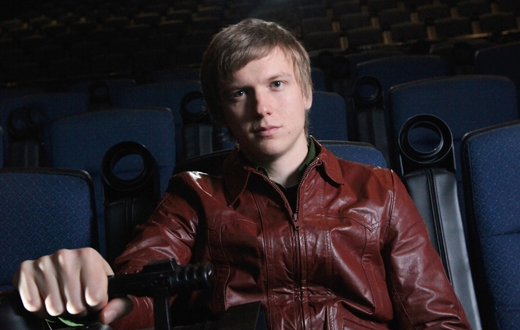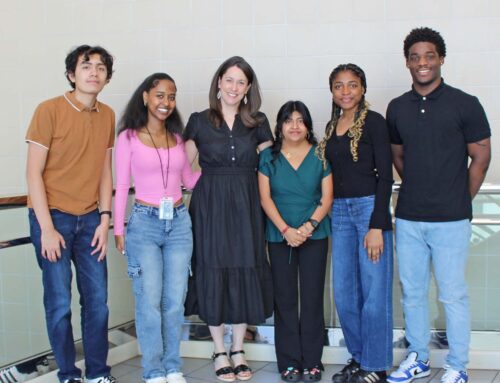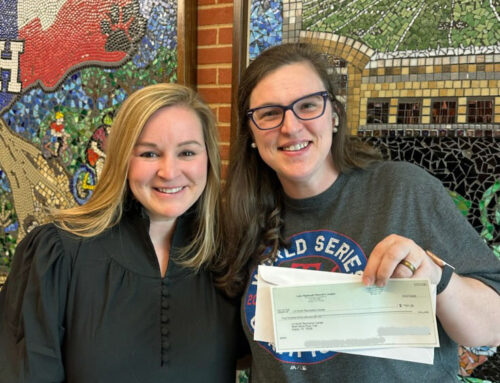When he was a student at Lake Highlands High School, Cameron Bruce Nelson was, by his own admission, a “total delinquent”. He had a rebellious streak that gave rise to class ditching and rule breaking, and drove his distressed parents to send him off to boarding school his senior year. But Cameron, like many a great troublemaker before him, was just an imaginative soul itching to find its place in the universe. Mere months after being temporarily ousted from home and school, he improved his academic standing enough to successfully finish high school and enter University of Texas at Austin where he graduated Phi Beta Kappa. Since, he has traveled the world, immersed himself in myriad cultures and honed his music skills, and has written, shot, edited and produced a handful of movies. These days he just premiered a documentary and is working on his first feature-length film.
Any interest in film or theater in high school?
I wasn’t really into much in high school or what it had to offer. I had a hard time, but I guess I was just trying to find my place. I didn’t go about it the best way, but by the time I got to college, I felt more in control; I settled in and allowed myself to learn. I realized that the world was so big and that there is so much out there.
When did your interest turn to moviemaking?
When I graduated from college, where I had double-majored in cultural anthropology and history, my dad gave me a camera. I brought it along on a trip to South Africa, which is where I fell in love with film. I had always been into music and visual arts — I guess when I discovered film, I saw it as a marriage of the two … I scored the films myself.
So, you saw the score as an elemental part of your films?
Not necessarily. It’s more like seeing the film, the score and the images, as a symphony itself.
When you returned to the United States, you didn’t go right into filmmaking, either. Instead you did something rather unconventional.
Yes. A friend and I decided to become migrant workers for a while. We wanted to make and save a lot of money, and have an experience, so we worked on a farm in southwest Virginia. We formed an art collective and tried some different things — live music, making music videos, touring with a band — but the idea of film was still speaking to me.
What brought you back to DFW?
I really came back here for a girl, Jessica Fuentes, who would become my wife and part of the core membership of our film production company, Rambos Rainbos.
Tell us about some of the things you have done so far.
Short films “In Kind” and “New Animal” premiered this year at festivals. We have done a documentary about a grass-fed cattle ranch in Greenville, Texas, and how farmers manage during a terrible drought. I am two-thirds of the way into our first feature length film about the farm that I lived on in Virginia — a lot of my work is autobiographical in some ways.
“In Kind” is about Robert Drake, a 50-something man who obsessively rides his bicycle. You’re barely 30, so how do you relate to him?
I find a lot of connections with Robert Drake, whether it’s through people I know or my own experiences as a stepfather. I won’t spoil it, but at the end of “In Kind,” you suddenly see him in a completely different way. That is a huge part of what I do — playing with people’s perceptions. Making the audience understand that things usually are not as they seem at first look.
Are you involved in every aspect of your movies?
I write, direct and produce. My wife is extremely artistic and designs sets and costumes, directs photography, and the third member of our core team is Mark Howell. I’ve had help from Frank Mosley, a filmmaker from Arlington has helped me with getting local actors. Waxahachie’s Jodie Moore plays the lead in “In Kind” and [Lake Highlands High School grad] Wilbur Penn plays a guy who interviews him for a job.
Somewhere I read that your films are often almost “uncomfortably intimate” — why and how do you evoke that?
I like to make the viewer feel what the character is feeling — like in “New Animal,” we are on the side of the highway in a car with an arguing couple. The camera is in the car, and the audience feels cramped and smothered, like the character feels. I like to focus on evoking a feeling rather than spelling everything out in the script, which is why I like a lot of European directors such as Antonioni. When directing, I like to have long talks with the actors and let them get to know and develop the character themselves. I plant the seeds and let the character grow in them — you have to have a lot of faith in your actors to do that.
Questions and answers have been edited for brevity.
• Watch movie trailers and learn more at rambosrainbos.com.






